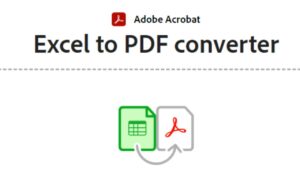
Determining the Qualifications You Need to Become a Data Analyst
Embarking on the fascinating road to becoming a data analyst? That’s great! Being one of the most sought-after professions in today’s data-driven world, a career in data analysis promises an enticing combination of challenge, value, and reward. But you might be on the fence, questioning, “What qualifications do I need to be a data analyst?” Well, let’s demystify the essentials.
Traditional Academic Route
For those choosing the academic path, a bachelor’s degree in a relevant field such as Mathematics, Economics, Statistics, or Information Management is typically required. A step further down the road, an advanced degree like a Master’s in Data Science, Business Analytics, or a related field, will provide an edge in this highly competitive field, paving the path towards senior roles.
Valuable Technical Skills
However, degrees only form a part of the story. Data analysts need a solid understanding of the technical aspects of the job:
- Excel Mastery: A strong command over Microsoft Excel is vital. This powerful tool comes equipped with functions like pivot tables, VLOOKUP, and much more, powering the analysis of data.
- Programming Languages: Languages like SQL for querying databases, Python or R for manipulating data and implementing statistical models are key for this field.
- Data Visualization: A knack for storytelling via charts, and graphs is crucial. Familiarity with tools like Tableau or PowerBI can give you an edge.
- Machine Learning: As businesses become more data-centric, exposure to machine learning can provide a significant advantage.
General and Soft Skills
A degree can’t teach everything. Soft skills and general skills contribute a lot to your success as a data analyst.
- Critical Thinking: Data analysts often tackle ambiguous problems. Hence, the ability to systematically approach these problems and conceptualize solutions is essential.
- Communication Skills: The role often requires explaining complex information to non-technical stakeholders. Thus, the ability to convey your findings effectively is crucial.
- Attention to Detail: Precision is key. Ensuring the accuracy of data and attentiveness to the minute data variations is essential.
The Non-Traditional Route
But, what if you don’t have a traditional degree? Can you still be a data analyst? Absolutely! In an evolving employment landscape, many successful data analysts have been self-taught or have gone through intensive boot camps, online courses, or certification programs. They’ve acquired the necessary hard and soft skills, built up portfolios showcasing their abilities, and have been persistent and resilient in their efforts.
ExcelKeys, your companion in this journey, provides a wealth of resources ranging from comprehensive tutorials to step-by-step project guides, enabling you to learn, apply, and exhibit your skill set even without a traditional data analytics degree.
In short, the qualifications needed to be a data analyst align with a combination of academic qualifications, hard technical skills, and soft general skills. Alongside these, passion, persistence, and adaptability are equally crucial. Remember, there’s no one-size-fits-all strategy and you need to find the best route fitting your personal needs and circumstances.


